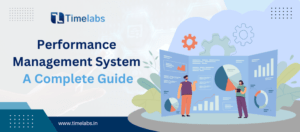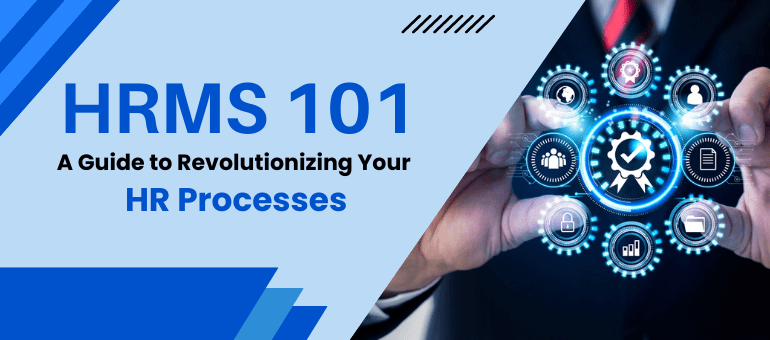Payroll management is a critical aspect of any business operation. It involves the administration of employee compensation, including wages, bonuses, and deductions, as well as compliance with various employment laws and regulations. In India, understanding the intricacies of the payroll system is essential for maintaining accurate and efficient payroll processes. In this article, we will explore the fundamentals of payroll management, discuss its importance in business operations, and provide tips and tricks to master payroll for accuracy and efficiency.
Understanding Payroll Management
Payroll management is a critical aspect of any business operation. It involves the administration of employee compensation, including wages, bonuses, and deductions, as well as compliance with various employment laws and regulations. Timely and accurate payroll management is essential for maintaining employee satisfaction, legal compliance, and overall business success. In this article, we will delve into the definition and overview of payroll management, explore the benefits of accurate and efficient payroll processes, and highlight the importance of payroll management in business operations.
Definition and Overview of Payroll Management
Payroll management refers to the process of handling and administering employee compensation, benefits, and deductions. It encompasses tasks such as calculating wages, managing tax withholdings, processing payroll, and ensuring compliance with labor laws. Payroll management involves maintaining accurate records of employee data, tracking attendance and leave, and accurately calculating payments. Effective payroll management ensures timely and accurate payment to employees while maintaining legal and regulatory compliance.
Also, Read: Ways to Error-Proof the Payroll Process For Small Business OwnersBenefits of Accurate and Efficient Payroll Processes
Accurate and efficient payroll processes offer several benefits to businesses, contributing to their overall success. Let’s explore some of these benefits:
Cost Savings
Accurate and efficient payroll processes can help businesses save costs by minimizing errors and avoiding penalties associated with non-compliance. When payroll is handled accurately, there is less risk of overpaying or underpaying employees, which can lead to financial losses. By automating calculations and streamlining administrative tasks, businesses can reduce manual errors and save valuable time and resources.
Employee Satisfaction
Accurate and timely payroll processing plays a vital role in employee satisfaction. Employees rely on their paychecks to meet their financial obligations, and any delays or errors can lead to frustration and dissatisfaction. By ensuring that employees are paid correctly and on time, businesses contribute to employee satisfaction, boosting morale and creating a positive work environment. Timely and accurate payroll management also helps maintain trust between the employer and employees.
Legal Compliance
Accurate payroll management ensures compliance with labor laws, tax regulations, and other legal requirements. By staying updated with the latest regulations, businesses can avoid legal issues, penalties, and potential lawsuits. Compliance with employment laws is paramount to avoid legal disputes and maintain a positive employer-employee relationship. By effectively managing payroll, businesses demonstrate their commitment to fair and ethical practices, building a solid reputation in the market.
Enhanced Productivity
Efficient payroll processes streamline administrative tasks, allowing HR and finance teams to focus on more strategic activities. By automating calculations and reducing manual work, businesses free up valuable time for employees to engage in value-added tasks that contribute to business growth. With the help of payroll software and automation tools, businesses can minimize the time spent on payroll management and redirect their resources towards activities that drive productivity and innovation.
Data Accuracy and Reporting
Accurate payroll processes provide reliable data for financial reporting and analysis. This enables businesses to make informed decisions based on accurate payroll information and facilitates budgeting, forecasting, and financial planning. Precise payroll data allows businesses to analyze workforce costs, compensation trends, and benefits utilization, enabling them to develop effective human resource strategies and make data-driven decisions.
Also, Read:Benefits of Payroll Automation for BusinessesImportance of Payroll Management in Business Operations
Payroll management plays a crucial role in business operations for several reasons. Let’s explore the importance of payroll management in detail:
Compliance with Legal Requirements
Payroll management ensures compliance with various legal requirements, including tax laws, labor regulations, and employment standards. Failure to comply with these regulations can result in penalties, fines, and damage to the company’s reputation. By accurately calculating and processing payroll, businesses can demonstrate their commitment to legal compliance and maintain a positive relationship with regulatory authorities.
Financial Management
Payroll is a significant expense for businesses, and effective payroll management helps in proper financial planning and management. It allows businesses to accurately budget for employee costs, benefits, and statutory contributions, ensuring financial stability. By keeping track of employee compensation, businesses can make informed decisions regarding their financial resources, allocate budgets effectively, and optimize their overall financial performance.
Employee Retention and Motivation
Timely and accurate payroll processing is crucial for employee satisfaction and retention. Employees rely on their paychecks to meet their financial obligations, and any delays or errors can lead to frustration and dissatisfaction. On the other hand, prompt and accurate payroll processing motivates employees and fosters loyalty towards the organization. By prioritizing accurate and efficient payroll management, businesses can create a positive work environment, boost employee morale, and enhance employee retention.
Record Keeping and Auditing
Payroll management involves maintaining detailed records of employee compensation, deductions, taxes, and benefits. These records serve as valuable documentation for audits, financial reporting, and resolving disputes. Proper record keeping ensures transparency and accountability in payroll processes, providing a reliable audit trail and facilitating accurate reporting. It also helps businesses resolve any discrepancies or issues that may arise in the future.
Strategic Decision-Making
Payroll data provides insights into workforce costs, compensation trends, and benefits utilization. Analyzing this data helps businesses make informed decisions regarding employee compensation, benefits packages, and overall human resource strategies. By understanding the labor costs associated with payroll management, businesses can develop effective workforce planning strategies, align compensation with market trends, and optimize their human resource management practices.
Employer Branding
Accurate and efficient payroll management reflects positively on the employer’s brand. It demonstrates professionalism, reliability, and a commitment to fair and transparent business practices. A strong employer brand attracts top talent and enhances the company’s reputation in the market. By prioritizing accurate and efficient payroll management, businesses can establish themselves as employers of choice and create a positive brand image.
Also, Read: How Modern Payroll Tech Helps In Better Payroll Management?Establishing a Solid Payroll Foundation
To master payroll management, it is essential to establish a solid foundation for payroll processes. This involves organizing payroll data and documentation, understanding employment laws and regulations, and implementing efficient payroll processes.
Organizing Payroll Data and Documentation
Proper organization of payroll data and documentation is crucial for accuracy and efficiency. Create a centralized system to store employee information, including personal details, tax forms, and employment contracts. Maintain a record of attendance, leave, and overtime hours to ensure accurate compensation calculation. By maintaining well-organized payroll records, businesses can easily access information when needed and reduce the likelihood of errors.
Understanding Employment Laws and Regulations
Compliance with employment laws and regulations is a fundamental aspect of payroll management. Stay up-to-date with labor laws, tax regulations, and statutory requirements applicable to your business. These may include minimum wage laws, tax withholding rules, social security contributions, and employee benefits. Non-compliance can result in penalties and legal complications, so it is crucial to understand and adhere to the applicable regulations.
Implementing Efficient Payroll Processes
Efficient payroll processes contribute to accuracy and efficiency in payroll management. Implement the following practices to streamline payroll operations:
Payroll Schedule and Timelines
Establish a payroll schedule and adhere to it consistently. Clearly communicate the pay period, cut-off dates for attendance and leave submissions, and the date of payment. Consistency in payroll processing helps create predictability and ensures that employees receive their wages on time.
Accurate Timekeeping and Attendance Management
Maintain accurate timekeeping and attendance records to ensure precise calculation of wages. Utilize time tracking systems or software to record employee working hours accurately. Implement policies and procedures to manage leaves, holidays, and overtime effectively.
Calculating and Processing Employee Compensation
Accurate calculation and processing of employee compensation are vital for payroll accuracy. Consider various elements such as base salary, overtime, bonuses, commissions, and deductions. Automate these calculations using payroll software or spreadsheets to minimize errors and save time.
Payroll Software and Automation: Enhancing Accuracy and Efficiency
In today’s fast-paced business environment, the adoption of payroll software and automation has become increasingly essential for organizations looking to streamline their payroll management processes. Payroll software offers a range of features designed to enhance accuracy, efficiency, and compliance. By leveraging these tools, businesses can simplify complex payroll tasks and reduce the risk of errors and non-compliance. In this article, we will explore the benefits of payroll software and automation, highlighting key areas where they can be particularly advantageous.
Ensuring Compliance and Accuracy
One of the primary benefits of payroll software is its ability to ensure compliance with tax laws, labor regulations, and company policies. These software solutions incorporate built-in checks and balances that automatically calculate tax withholdings, statutory contributions, and benefits. By relying on accurate and up-to-date tax tables and formulas, payroll software minimizes the chances of errors and non-compliance, reducing potential penalties and legal complications.
Tax Compliance and Reporting
Tax compliance can be a complex and time-consuming aspect of payroll management. Payroll software simplifies this process by generating tax reports and forms, such as Form 16 and tax deduction statements, automatically. These software solutions keep track of tax slabs, exemptions, and deductions, ensuring accurate tax calculations and facilitating smooth tax filing processes. By automating tax compliance and reporting, businesses can save valuable time and resources, enabling their payroll teams to focus on more strategic activities.
Auditing and Reconciling Payroll Records
Maintaining accurate payroll records is crucial for audits, reconciliations, and tracking changes. Payroll software provides a comprehensive audit trail, making it easier to track and verify payroll data. These software solutions automatically reconcile payroll records with bank statements, minimizing discrepancies and ensuring accuracy. With streamlined reconciliation processes, businesses can reduce the risk of fraud and improve overall payroll accuracy.
Payroll Troubleshooting and Issue Resolution
Despite efficient processes, payroll discrepancies and errors can still occur. Payroll software helps address these issues promptly and efficiently, minimizing the financial impact and maintaining employee trust. When discrepancies or errors are identified, businesses can use the software to investigate and take necessary corrective measures. By maintaining open communication channels with employees, addressing their concerns transparently, and keeping detailed records of corrective actions, businesses can foster a positive work environment and mitigate potential future errors.
Addressing Employee Payroll Inquiries
Employees often have questions or concerns regarding their payroll. By establishing dedicated channels, such as help desks or HR portals, businesses can provide timely responses and address employee payroll inquiries effectively. Promptly addressing these inquiries not only resolves individual concerns but also fosters a positive work environment, promoting trust and employee satisfaction.
Payroll Best Practices and Future Trends
To stay ahead in payroll management, it is crucial to adopt best practices and keep up with emerging trends. Here are a few areas to focus on:
Adopting Best Practices for Payroll Management
Continuously evaluate and refine payroll processes by incorporating industry best practices. Regularly review and update policies, procedures, and documentation to align with changing legal requirements. Stay connected with industry associations, attend seminars, and seek professional advice to stay informed and improve payroll management practices.
Embracing Technological Advancements in Payroll
Technology plays a transformative role in payroll management. Embracing innovative solutions, such as cloud-based payroll software and mobile applications for employee self-service, can significantly improve efficiency, accessibility, and data security. Integration with other HR systems further streamlines processes and enhances overall payroll operations.
Conclusion
Mastering payroll management is crucial for businesses to ensure accuracy, compliance, and efficiency in employee compensation administration. By establishing a solid payroll foundation, implementing efficient processes, leveraging payroll software, and addressing payroll issues promptly, businesses can optimize their payroll management practices. By adopting best practices and embracing technological advancements, organizations can stay ahead of the curve in payroll management, contributing to overall business success.
Also, Read: Can Payroll Software Acts as an Effective HRMS?FAQs (Frequently Asked Questions)
1. Is payroll management only relevant for large organizations?
No, payroll management is essential for organizations of all sizes. Even small businesses must accurately calculate and process employee compensation while complying with legal requirements.
2. Can payroll software handle complex payroll calculations?
Yes, payroll software is designed to handle various complexities of payroll calculations, including taxes, deductions, and benefits. It automates these calculations, reducing the chances of errors.
3. How often should I update my payroll policies and procedures?
It is recommended to review and update your payroll policies and procedures annually or whenever there are significant changes in labor laws or regulations.
4. What should I do if I discover an error in an employee’s paycheck?
If you discover an error in an employee’s paycheck, promptly notify the employee and rectify the mistake. Keep a record of the corrective action taken for future reference.
5. How can payroll automation benefit my business?
Payroll automation can benefit your business by reducing manual errors, saving time, ensuring compliance, and providing accurate financial reporting. It streamlines payroll processes and frees up resources for other strategic activities.



